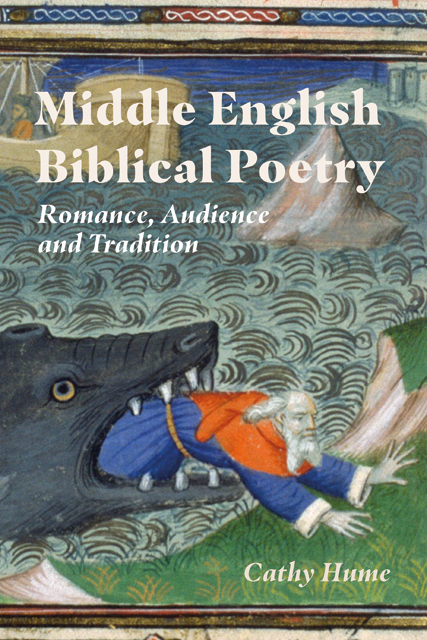Book contents
- Frontmatter
- Dedication
- Contents
- List of illustrations
- Acknowledgements
- List of abbreviations
- Note on translations
- Introduction
- 1 Iacob and Iosep: a happy tale of a knightly family
- 2 Two lives of Adam and Eve: exemplarity after the Fall
- 3 A Pistel of Susan: beauty in a Babylonian garden
- 4 Patience: anti-romance
- 5 Cleanness: household virtues, familiar sins
- Conclusion
- Bibliography
- Index of manuscripts
- General index
1 - Iacob and Iosep: a happy tale of a knightly family
Published online by Cambridge University Press: 04 January 2024
- Frontmatter
- Dedication
- Contents
- List of illustrations
- Acknowledgements
- List of abbreviations
- Note on translations
- Introduction
- 1 Iacob and Iosep: a happy tale of a knightly family
- 2 Two lives of Adam and Eve: exemplarity after the Fall
- 3 A Pistel of Susan: beauty in a Babylonian garden
- 4 Patience: anti-romance
- 5 Cleanness: household virtues, familiar sins
- Conclusion
- Bibliography
- Index of manuscripts
- General index
Summary
Iacob and Iosep is one of the earliest surviving Middle English poems, probably dating from the second half of the thirteenth century and thus roughly contemporary with early romances such as King Horn, Kyng Alisaunder and Floris and Blauncheflur. The poem has not been completely ignored since Napier’s 1916 edition: David C. Fowler enthused about the originality of its narrative construction and its overall effect; in 1945 Oscar Sherwin used it to argue for the existence of a lost ‘tradition of religious ballads composed and sung by the friars’; and it has had some attention in studies of thirteenth-century manuscripts. Most recently, in 2017, Murdoch published an article dedicated to the poem and its relationship with earlier receptions of the Bible. But it has fallen outside the scope of two of the most influential assessments of the vernacular literature of thirteenth-century England: Susan Crane’s Insular Romance and Christopher Cannon’s The Grounds of English Literature. In this chapter I will analyse the poem’s unusual mixture of English colouring and interest in a foreign landscape and linguistic context, the tight fall and rise plot it combines with a free rewriting of the Genesis story, and the high emotion it maintains alongside its articulation of male upper class interests. I will attempt to reconstruct the poem’s original vernacular literary context, including biblical poetry, ballads, saints’ lives and romances, and show how its deceptively simple style belies its participation in a lively literary culture. I will argue that the poem was written for a knightly audience, probably by a household chaplain, rejecting both Murdoch’s view that it was written for a baron, and characterisations of its manuscript as a friars’ miscellany.
Iacob and Iosep runs to only 538 lines in its current state – halfway through the poem a leaf of its unique manuscript, MS Bodley 652, is missing. Its lines are arranged in rhyming couplets, a mixture of alexandrines, septenaries and four-stress lines, giving an overall effect that Derek Pearsall has described as ‘vigorous and fast paced’. This rather irregular form connects the poem with contemporaries such as the South English Legendary and the ballad of Judas, which I will discuss in more detail below, as well as the later romance of Gamelyn.
- Type
- Chapter
- Information
- Middle English Biblical PoetryRomance, Audience and Tradition, pp. 31 - 58Publisher: Boydell & BrewerPrint publication year: 2021



